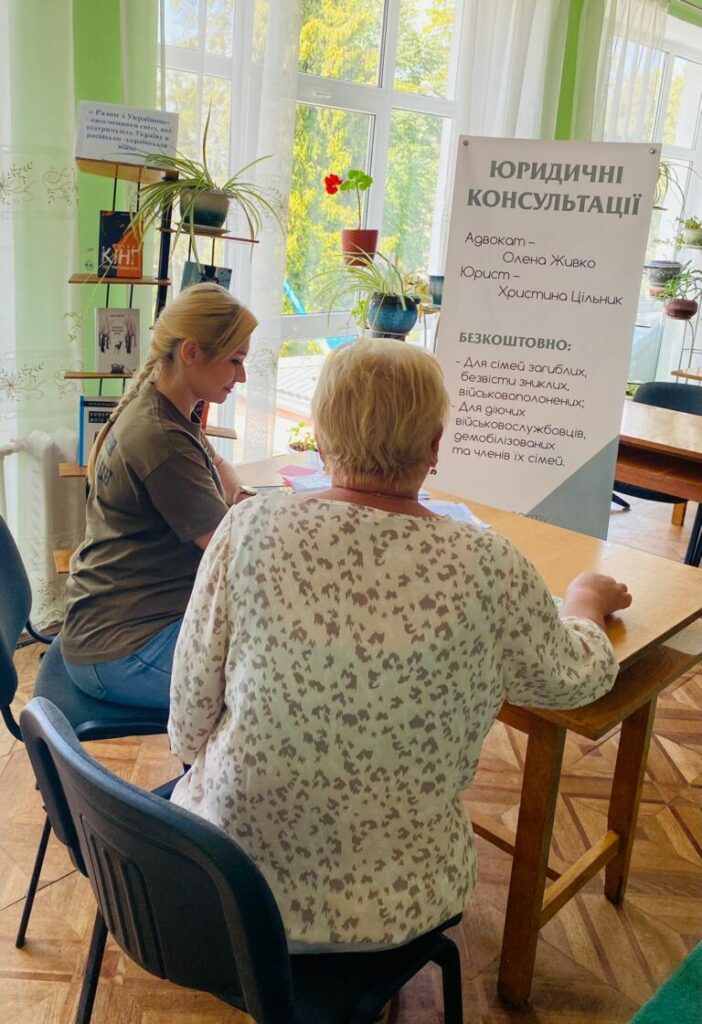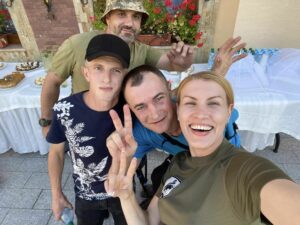The winners of the Varto+GO competition from the Ukrainian Veterans Foundation of the Ministry of Veterans Affairs is the NGO “Association of Volunteers” from Lviv Oblast.
Their priority task today is to help veterans, adults and children in need to adapt to civilian life, socialize and accept new conditions and reality.
“In the Lviv region, this category of people includes 200,000 people. Most of them live in the territorial communities of the region, in small towns and villages and need help in the form of the simplest things: to talk to their own people, to learn how to draw up documents and to know for sure that they are “their own,” says Olena Zhyvko, head of the NGO “Association of Volunteers.”

Ms. Olena is a veteran and knows from her own experience what challenges veterans face after returning and how they can be helped. The following story, in her own words, is a story of war and hard work for victory and for those who fight for it with their sweat and blood.
Volunteering
I made the decision to go to the front immediately after the full-scale invasion, as I have been a member of a veteran organization since 2014. I have been going to the front as a volunteer since 2014. In 2022, I enlisted in the army by choice. I was a member of the 80th Brigade, which went through some of the most difficult battles at the front.
My task was to evacuate the dead. In other words, not the kind of evacuation that takes place now – from morgue to morgue. Often it was straight from the battlefield to the morgue and then to Lviv.
It was a period when there was no clearly defined front line. Sometimes there were breakthroughs in the cities we visited, and they were captured by the Russians. These were specific tasks. It was a difficult time, when the front line was changing very actively and traveling was very dangerous.
But to go to the front in 2014, to hear even the work of artillery somewhere far away and to experience the war of 2022… I realized that I had never seen war before. I am not saying that it was easier, but a full-scale invasion is very intense, with the powerful use of all kinds of weapons. So it is really difficult and scary.
The worst thing was that when you went as a volunteer, the war was somewhere else. It didn’t affect your family, your daughter, your parents. And in 2022, I didn’t worry about myself, but I was very worried about my family. There are no safe places in Ukraine. The enemy can attack anywhere.
The specifics of my job were that I regularly returned to Lviv. We evacuated the bodies to the Lviv morgue. We often had to take even the bodies of the dead from Zhytomyr to Lviv, because the situation in Zhytomyr was very uncertain at that time. That is, we were on our way to Zhytomyr, it was under heavy shelling, fighting was starting, and we were asked not to take the bodies for the time being.
When we arrived in Lviv, relatives and volunteers handed over aid to the fighters. We returned to the south and east with an empty car. That is why the volunteer activity did not stop. For example, in March 2022, we actively brought baby food and diapers to Mykolaiv. Later, small children were evacuated in large numbers and there was no longer such a need. So we brought more things for the military.
In September 2022, I fully returned to normal civilian life. Later, I returned to my work as a lawyer, continuing to provide volunteer assistance, social assistance, and assistance in returning from the front.
“Association of Volunteers” and the great war
We were preparing for the war as an entire organization, it was not something new for us. I understand that there is no one who is fully prepared for war. War is a circumstance for which you cannot prepare. However, we understood what awaited us.
The NGO “Association of Volunteers” is an all-Ukrainian organization, and on the eve of the full-scale invasion, we conducted a course for civilians. We told them how to behave during a full-scale invasion, about shelters and their types. Thus, we emphasized this kind of training. Unlike other trainings where people taught civilians how to hold weapons, we taught them how to hide.
If you teach a civilian how to hold a weapon, he or she may not always be able to adequately navigate the situation, understand where our troops are and where the enemy is. A civilian with an assault rifle can become a victim. Both our military and the enemy can start shooting at him. And the knowledge of how to hide can save lives.
During our training, the military recommended not to leave big cities for small ones, and as it turned out, they were right. The example of Irpin and Bucha showed this. After all, big cities are like fortresses, they are harder to take.
In our inner circle of the NGO “Association of Volunteers,” we agreed on how to act in certain situations, what to do if the connection is cut off. Our organization joined the patrolling of certain facilities in Lviv, Kyiv and other cities. And I joined the army, so all social projects were put on the back burner.
Returning from the front: veterans and the community
I have noticed the following trend: in large cities, work with and for veterans is much better organized. During the full-scale invasion, for example, in Lviv, there were a lot of international organizations working. Accordingly, in smaller communities, there are only several times less of them. For example, I will tell you that even group work with a psychologist in the city is more effective than in a village or small town. In Lviv, the wives of the victims come to meetings and in most cases they do not know each other. In small communities, this is a problem: you open your soul, and on the other side are people who know you. People are afraid of being judged, afraid that their neighbors from the village will say that “she goes to a psychologist.” We have had cases where people have heard who psychologists are for the first time. They often perceive psychologists as people who treat the mentally ill. And our specialists have to explain this.
When a person returns from war to big cities (Lviv, Kyiv), the family and the city itself encourage them to work harder, to be in constant motion, because that’s how the world is built. Let me use my own example: when I returned from the front, it was very difficult for me. At the front, I didn’t communicate much with the living, I saw the dead all the time. And it was very difficult for me to return to the city where music plays, where many people walk, where there are no explosions. My motivation was my child and my responsibilities. These things encourage you to return to work. Even if you don’t want to.

As for small villages and towns. Small communities mean a different subsistence level and a much narrower choice for a person. It’s harder for people there, there is nowhere to go, no cinemas, no gyms, no veterans’ communities – no choice. It’s simple: people are bored. Of course, people in big cities also get depressed and start drinking alcohol. In small towns, I have observed that sometimes there is a hopeless situation –- a person falls into a trap.
It is extremely important to work with such people and show them that there is a choice, a way out, and that depression is normal, insomnia is normal. These are all consequences of war that can be overcome. Sometimes you think that something is wrong with you, that you are just “going crazy,” but in fact, everyone has such a story and you need to learn to live with it, get help and return to normal civilian life.
“If we don’t learn to deal with these challenges now, it will be very difficult for us – even worse than now, during the fighting”
Since 2014, our NGO has implemented many projects. These included the celebration of the Day of Ukrainian Volunteer together with the Ministry of Defense of Ukraine, annual events for children during the winter holidays, the exhibition “Portrait of a Volunteer at War,” a presentation of the frontline Kobzar in the Verkhovna Rada, and many other social events.

We did it with our membership fees. Currently, all the contributions and donations we have are directed to support the army. We have a lot of interesting things in mind, but the priority is requests from military units.
At the same time, social projects are incredibly important. Now it is very important to learn how to return from the front, how to live with it all. When a large number of people return after the victory, will society be able to cope with it? If we don’t learn how to deal with these challenges now, it will be very difficult for us, even worse than it is now, during the fighting.
To ensure that our social projects continue to work, we decided to participate in the “Varto+GO” competition from the Ukrainian Veterans Foundation. To be honest, it was quite scary, because as a lawyer, I draft a lot of documents, but a project application is another matter. We had no experience in writing grant applications, but we followed the instructions, wrote them, and our project received the highest number of points from the experts. This is inspiring. We are pleased that the volunteers not only know how to fight, but also how to write applications and develop themselves competently.
But the most important thing is that we received funding for the projects we used to do. For example, the Ukrainian Veterans Foundation paid for fuel to travel to communities in Lviv Oblast (which is a significant part of the costs), psychologists, and lawyers. This means that our organization continues to operate on a volunteer basis. We do not receive a salary, but we are able to work. When you have sustainable funding, it’s great. You can learn to live civilly, and this is very important. When you are supported, it’s great. Currently, we have a great relationship with our lawyer.
We visit communities, and the families of the fallen come very actively. They have a lot of questions: about obtaining documents, about payments. Our lawyers help to resolve these requests. We have already established work with children of slain heroes. Every Monday we hold art therapy with a child psychologist.
Our biggest challenge now is to engage demobilized soldiers, those who have returned from the front for health reasons or family reasons. We want to reach every veteran in the communities so that they know the services we can provide.
Now in the communities we are already starting to create groups of psychologists working with certain categories: separately with families of the deceased, separately with demobilized soldiers. In one of the communities, military men asked us to organize a seminar for their wives and explain to them what happens to their husbands after they return from the war. Now a psychologist is working on it, and we will explain to the wives that their husbands come back differently because they have been so affected by the war. Understanding each other will help avoid conflicts in families.

There is also a request from the heads of social departments on how they should communicate with the military and demobilized people, what expressions should be avoided. This is a very important aspect, because not all authorities and people who work with this category of people fully understand how to communicate. We have started working in this direction as well.
In addition, we hold veterans’ meetings with Khrystyna Panasyuk. These are warm and cool meetings. Our main task is not to gather full halls, but to unite veterans. You know, they open up, they speak, they all speak the same language. It seems to me that even if they are silent, they will still understand each other.

We will continue to hold such meetings in other communities. Having a comfortable circle of brothers, being among your own is also therapy.
In general, there is a lot of work to be done and we continue to work for a common cause.
We would like to remind you that the Ukrainian Veterans Foundation of the Ministry of Veterans Affairs will soon launch a competition to support non-governmental organizations working with the veteran community.


